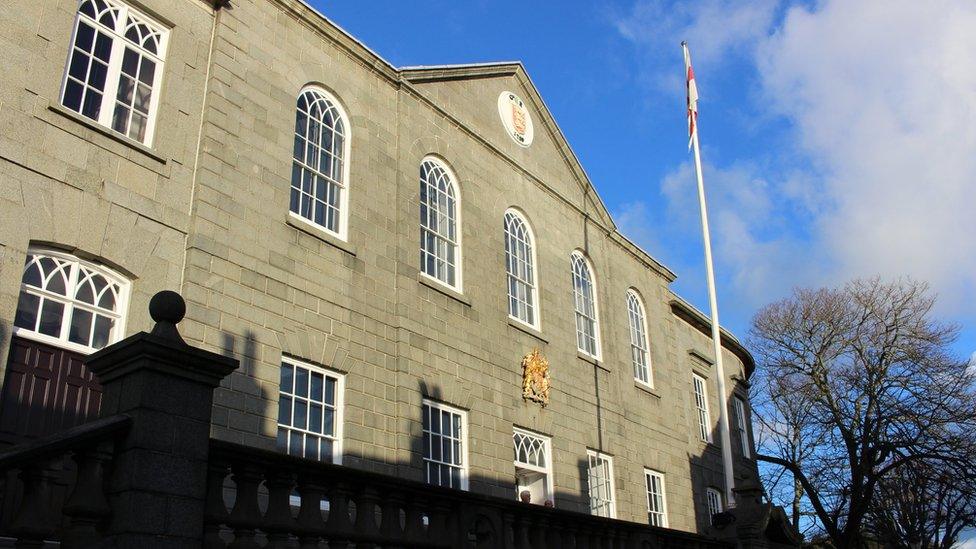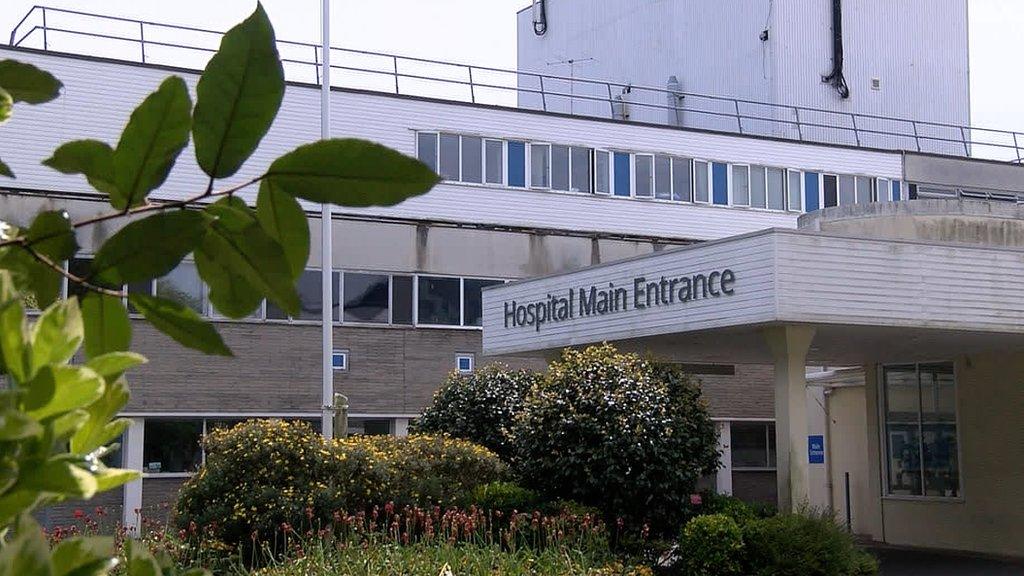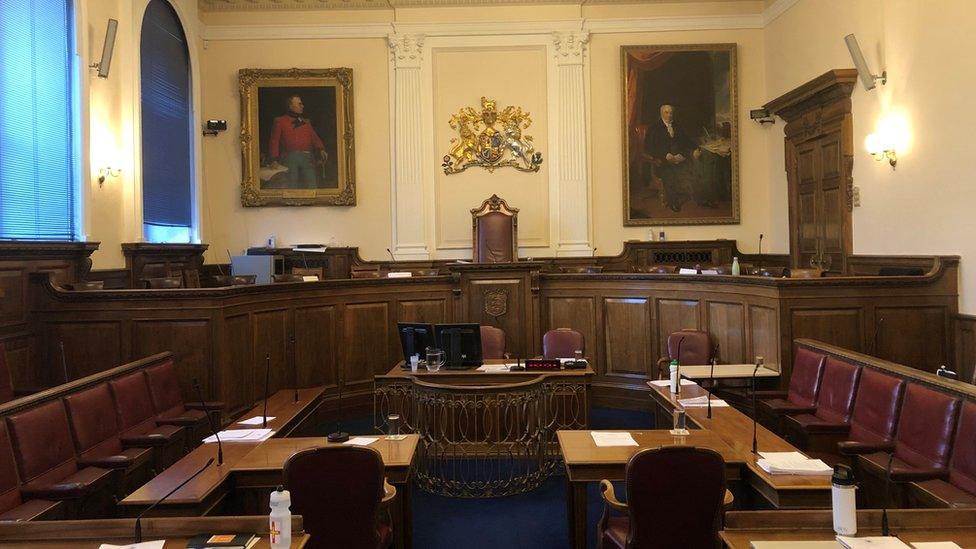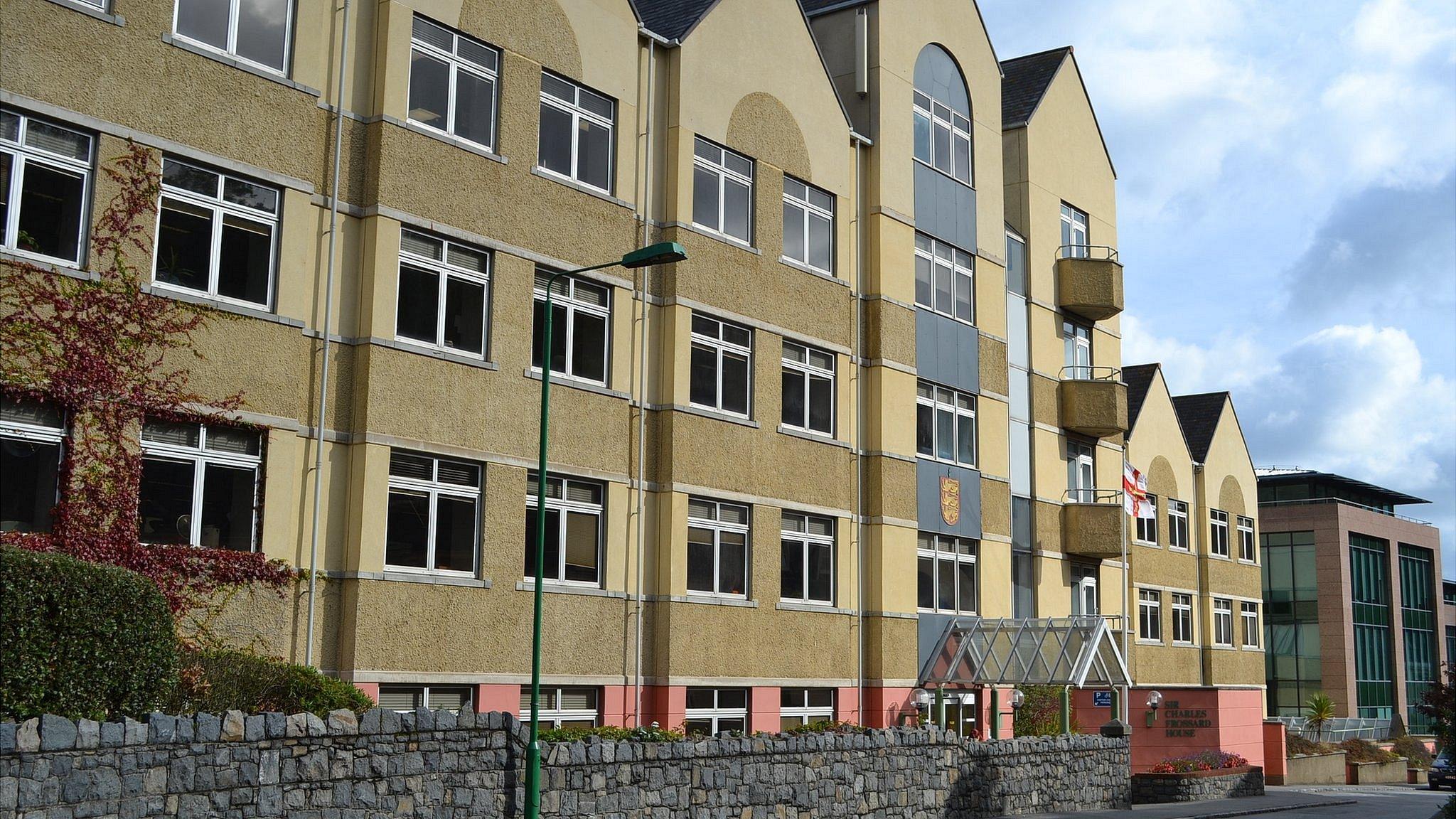Public service cuts of up to £80m over five years
- Published

The States said cost-cutting was one of the biggest challenges we face
The government must cut between £50m and £80m from public service funding over the next five years, it has said.
A committee is inviting islanders to suggest ways in which their public services might be delivered more cheaply.
The Reducing the Cost of Public Services sub-committee is tasked with saving between £10m and £16m every year for five years.
The States of Guernsey said it was "one of the biggest challenges we face".
It is looking to generate income, restructure services and reduce access to services to offset a £100m-a-year shortfall for public services forecast by 2040, it said.
The States said this was driven by people living longer and having fewer children, driving greater demand for services, while a diminishing workforce was reducing contributions to public finances.
It added: "On top of that, there is a need to invest in our critical infrastructure so that essential services can be delivered in fit-for-purpose facilities.
"Priorities such as the affordability of housing, growing the economy, and meeting international obligations are also essential costs that need to be met."
'Biggest challenges'
It said this had led to "one of the biggest challenges we face", and that a tax review in February highlighted the need to reduce costs as part of a broader response.
Between 2009 and 2014, States Assemblies carried out a major savings programme, reducing expenditure by more than £28m, it said.
However the States said this had not stopped the rise in costs, pushed upwards by the growing demand for services, "driven by the changing population".
The sub-committee is asking for input from other committees, politicians, public sector employers and islanders.
On 26 June, it said a "short survey" would be launched for feedback on how to generate income, restructure services and reduce access to services, through methods such as means testing.
Deputy Dave Mahoney, chairman of the sub-committee said: "While it's hard to predict at this stage what sort of suggestions we'll get, I'm hoping that overall we get a good insight into how the community wants us to tackle this very significant challenge."
Deputy Sasha Kazantseva-Miller, member of the sub-committee said it was an exercise "we need to tackle quickly" and asked for responses by 14 July.
The sub-committee is due to report its recommendations to the States Assembly at the start of 2024.
States of Guernsey said the report was aimed at "ensuring public finances are sustainable for future decades".

Follow BBC Guernsey on Twitter, external and Facebook, external. Send your story ideas to channel.islands@bbc.co.uk, external.
Related topics
- Published13 June 2023

- Published16 February 2023

- Published14 March 2023
